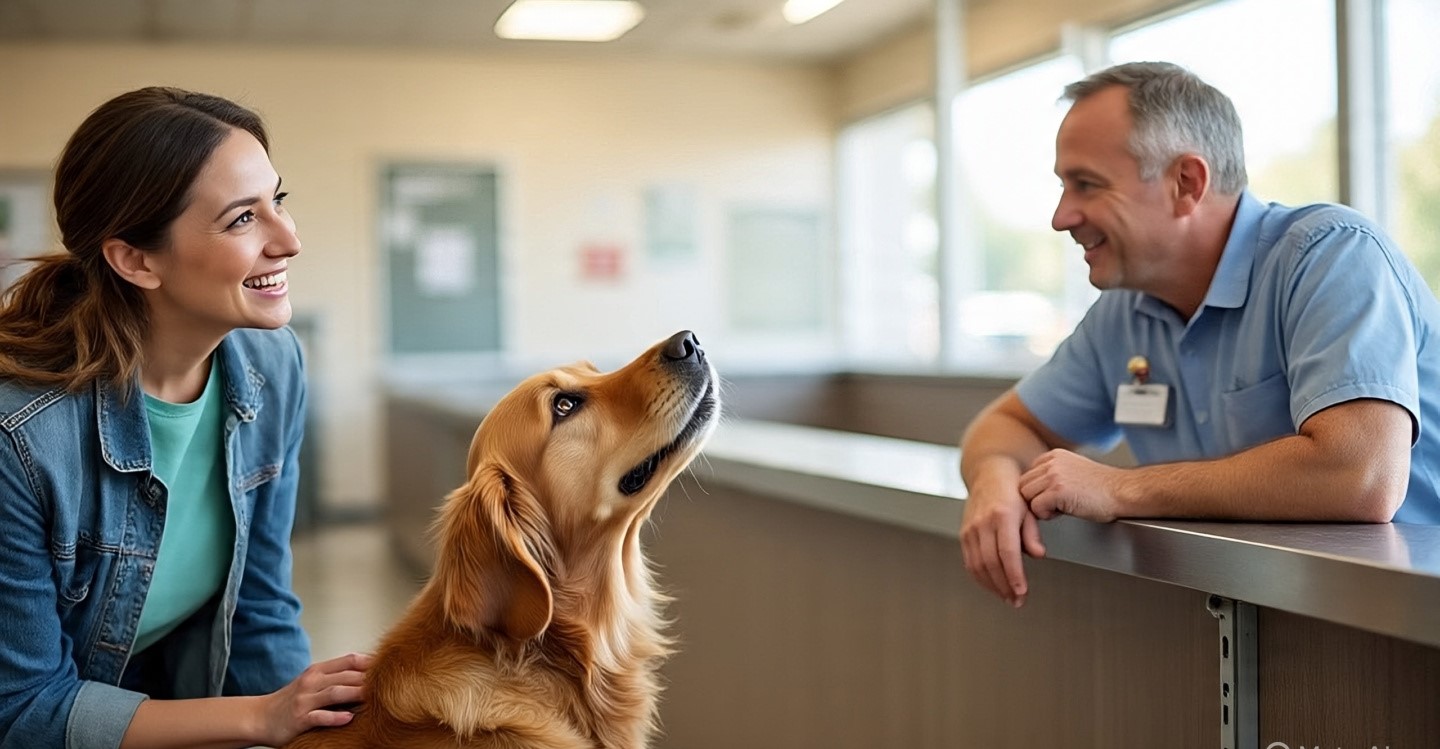Are you thinking about getting a pet? Getting a dog may be a very gratifying thing to accomplish, but you need to do your homework and get ready for the obligations that come with having a dog. There are so many great dogs looking for a permanent home that it’s important to ask the appropriate questions to make sure you locate the ideal one for you and your family.
We’ll show you the most important things to ask before adopting a dog in this post. We’ll go over everything you need to know to make an informed choice, from learning about the dog’s history to talking about its training and health needs.
Quick Summary
- Adopting a dog is a lifelong commitment, so make sure to ask about its health, behavior, and history.
- Know what kind of lifestyle you have and if it fits with what the dog requires.
- Before making a choice, find more about the dog’s medical history, training, and daily care.
- Always adopt from shelters, rescues, or adoption centers that are well-known.
Table of Contents
Why It’s Important to Ask Questions Before Adopting a Dog

Getting a dog is more than simply getting a friend; it’s a 10–15-year commitment. The American Veterinary Medical Association (AVMA) says that dogs require regular care, good food, exercise, and visits to the vet to enjoy long and healthy lives. If you don’t ask the correct questions, you can run into problems you weren’t ready for.
Section 1: History & Background
It’s important to know a dog’s past and history before getting one. You may use this knowledge to plan for any behavior problems and make sure you’re making the correct choice for your lifestyle.
- Why is the dog up for adoption?
Knowing why the dog is being adopted will help you figure out what problems or hurdles you could have with its behavior.
2. How long has the dog been living at a shelter or with a foster family?
Knowing how long the dog will be staying with you might help you figure out how well they are adjusting to different places.
3. Do you know everything about the dog’s past, including any prior owners or any abuse or neglect?
Find out what the dog has been through in the past and what could have hurt it.
4. Is the dog a stray, or did someone else give it up?
Knowing where the dog came from might help you guess what kinds of behavior problems it might have.
YOU MIGHT LIKE THIS: how long you can safely leave a dog alone
Section 2: Health & Medical
- When you acquire a dog,?
their health should be your main priority. Be aware of any medical conditions you already have or might have in the future.
- What is the dog’s present health like?
Does he or she have any recognized illnesses or conditions?
Get the dog’s medical records and ask about any health problems it may already have.
- What meds is the dog taking, and how much do they cost?
Know what medical care the dog needs and how much it can cost.
Has the dog gotten all of its shots and been checked for and treated for parasites?
Make sure the dog gets all of its shots and other preventative care.
- Are there any health problems that could happen, like allergies or joint problems?
Find out what health problems are frequent in the breed and talk to the shelter or breeder about any worries you might have.
READ MORE: keeping your adopted dog fresh and odor
Section 3: Behavior & Temperament
It’s crucial to know how your new dog acts and what they like when you get one. Ask the shelter or breeder about the dog’s behavior and personality.
- What kind of energy and personality does the dog have?
Learn what kind of dog you have and what kind of person it is.
- What does the dog do when there are other dogs, kids, and cats around?
Check to see if the dog will get along with your family and other pets.
- Do you know of any behavioral issues, including being scared when left alone, protecting resources, or being reactive?
Talk about any behavioral issues you know about and how to fix them.
- Does the dog have any fears or worries?
Find out what makes your dog happy and what can make it angry.
- Is the dog able to go to the potty and stay in its crate?
See if the dog needs extra training.
- How well does the dog behave on a leash, and what commands does it know?
Find out how well the dog has been trained and what it might need.
Section 4: Daily Needs & Lifestyle
Make sure that your lifestyle and living conditions are good for the dog.
- What does the dog need to do to be healthy and clean?
Know what the dog needs in terms of health and grooming.
- Does the dog have any special dietary needs or favorite foods or treats?
Talk about what the dog needs to eat and what it likes to eat.
- How does the dog do when it’s left alone for a long time?
Know how likely it is that your dog will get anxious when you leave.
- What are the games and toys that the dog likes best?
Find out what the dog likes and how it acts.
Section 5: Logistics & Support
Learn about the adoption process and the help that is available following adoption.
- How much does it cost to adopt, and what does it cover?
Find out how much it will cost to adopt and what is included.
- What does the shelter say about returns, and what happens if medical problems come up after adoption?
Know the shelter’s policy on returns and any help they might offer.
- Can my present dog meet the dog I want to adopt before I make the final decision?
Make sure your pets get along with each other.
- What kind of help is there after adoption, and do you have a plan for behavior?
Talk about help after the adoption and possible services.
Additional Questions
- What is the dog’s breed and age?
Understanding the dog’s breed and age can help you anticipate potential health issues and energy levels. - What training has the dog received?
Ask about any basic obedience training or behavioral modification the dog has received. - How much attention and interaction does the dog require?
Some dogs require constant attention, while others are happy to entertain themselves.
FAQs
Q1. Do shelter dogs usually have health problems?
Yes, sometimes. Many shelter dogs are brought in without previous vet care. Common issues include parasites (fleas, ticks, intestinal worms), kennel cough, dental disease, skin conditions. But shelters typically treat these before adoption. The Woof
Q2. Are purebred dogs a higher risk for illness than mixed breed dogs?
Often yes—many purebreds are genetically predisposed to certain diseases (heart, joint, breathing, eye diseases). Mixed breeds can still have issues, but “hybrid vigor” often lowers risk. spca.org.hk+1
Q3. How long does it take a dog from a shelter to adjust?
It varies. Some dogs relax in a few days; others take weeks or even months to feel truly comfortable. Consistent routine, patience, safe space, and positive reinforcement speed up adjustment. San Diego Humane Society+1
Q4. What is a realistic annual cost of owning a dog?
Costs include: food, basic vet care (vaccinations, check-ups), parasite control, grooming, training, possibly treatment for health issues. Depending on breed, size, and region, this can vary widely. Budget more than the adoption fee.
Q5. How do I know if a breeder is ethical vs a backyard breeder?
Ethical breeders will: provide health certificates for parents, allow you to meet parents, provide pedigree info, avoid overbreeding, ensure good socialization early. Red flags are lack of paperwork, no vet checks, pressure to buy quickly.

Karim Kaifi is an experienced pet owner and writer. He shares practical, research-backed advice based on over 10 years of caring for cats and dogs.






